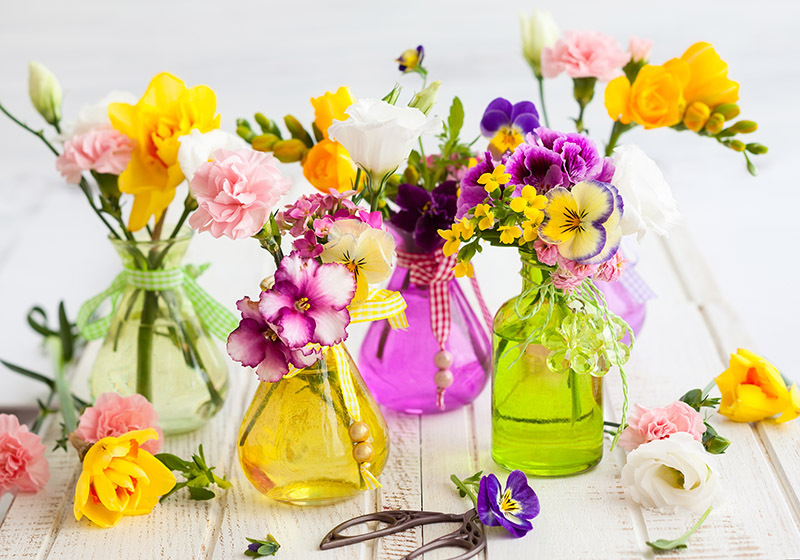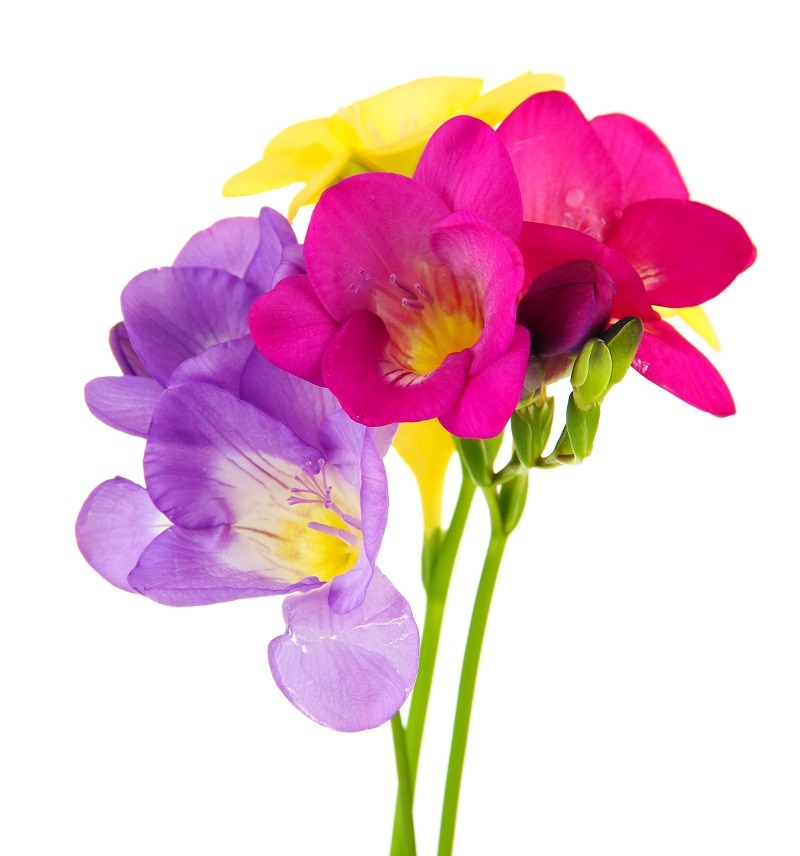Exploring the Rich Symbolism of Peony Flowers in Various Cultures
Posted on 02/07/2025
Exploring the Rich Symbolism of Peony Flowers in Various Cultures
The peony flower, with its lush full blooms and captivating fragrance, has enchanted civilizations for millennia. More than a beautiful blossom, the peony holds significant symbolic meaning in different parts of the world. In this comprehensive exploration, we delve into the origins, historic usage, and unique cultural symbolism of peony flowers across continents.

Introduction to Peony Flowers: A Botanical Marvel
Native to Asia, Europe, and Western North America, the peony (genus Paeonia) is a perennial plant admired for its spectacular flowers. There are over 30 species of peonies and thousands of hybrids, ranging in colors from soft whites and pinks to vibrant reds and yellows.
- Longevity: Peonies can live for decades and even longer when properly cared for.
- Blooming Season: Most peony varieties bloom in late spring to early summer.
- Fragrance and Uses: The heady scent of peonies makes them a favorite in perfume and beauty products.
The combination of their visual opulence and hardiness has contributed to the peony's status as a powerful symbol through time.
Peony Symbolism in Chinese Culture
The National Flower of China
The peony flower enjoys a revered status in Chinese culture. Known as "??" (Mudan) in Chinese, the peony is regarded as the "King of Flowers" and is often dubbed as the "National Flower of China," although the official status remains debated alongside the plum blossom. Its grandeur and rich blossoms have made it a symbol of:
- Prosperity & Wealth
- Honor & High Social Status
- Feminine Beauty
- Romance
Historical Connections and Artistic Depictions
In ancient China, especially during the Tang Dynasty (618-907 CE), peonies were cultivated in imperial gardens as emblems of affluence and good fortune. Their presence in poetry, paintings, and embroidery attests to their continued significance.
Chinese wedding traditions often feature peonies, symbolizing a happy marriage and fertility. During the Lunar New Year, peony images and arrangements are believed to attract luck and positive energy.
Peony in Chinese Folklore and Mythology
One well-known myth tells of Empress Wu Zetian, who, angered that peonies disobeyed her command to bloom in winter, banished them to Luoyang. Surprisingly, the flowers flourished, reinforcing their association with resilience and enduring beauty.
Peony Symbolism in Japanese Culture
Peony as a Symbol of Good Fortune and Bravery
Japanese culture also reveres peonies for their grandeur. Known as "botan" (??), in Japan, peonies symbolize good fortune, bravery, and honor. The flower is deeply rooted in both traditional art and modern life, reflecting unique aesthetic and philosophical aspects.
In Traditional Japanese Art and Tattoos
The connection between peonies and samurai culture is profound. The peony is a popular motif in Japanese tattoos (irezumi), often paired with lions or dragons to represent a balance between beauty and ferocity. In kimono designs and ukiyo-e woodblock prints, peonies denote elegance, wealth, and fleeting beauty.
Symbolism in Japanese Festivals
Every spring, peony festivals (such as the Toshogu Peony Garden in Nikko) draw crowds wishing to experience the fleeting beauty of these flowers. For many, peonies symbolize the transience of life, echoing Buddhist concepts of impermanence.
Peony Flower Meanings in Western Traditions
The Language of Flowers (Floriography)
During the Victorian era, the peony flower became part of the "language of flowers"--a secret method of communicating feelings through floral arrangements. In this context, the peony often represents:
- Bashfulness
- Romance
- Happy Marriage
Victorians believed that blushing peonies grew where fairies had hid their faces, infusing a touch of whimsy and secrecy into their symbolism.
Peony in European Art and Literature
In ancient Greece, the peony was associated with Paeon, a healer to the gods, leading to beliefs in its medicinal properties. Peony roots and seeds were used as remedies for various ailments, and the flower was linked to protection and healing.
Modern European and American weddings often use peonies as a symbol of romantic love, good fortune, and a blissful union, similar to interpretations in Asia.
Peony Symbolism in Korean Tradition
Korea has its own rich associations with the peony, often showcased in folk art and palace decorations. The peony represents:
- Wealth and Nobility
- Honor and Aristocratic Grace
- Spring and Fertility
Peonies frequently appear in Korean minhwa paintings--a style of folk art created to invite good fortune and prosperity into the home. They are a constant motif in wedding rituals and traditional costumes, echoing wishes for lasting happiness and wealth.
Other Cultural Associations of Peony Flowers
- Peony in Greek Mythology: As mentioned earlier, named after the healer Paeon, the peony was believed to have protective and healing powers.
- Peony in Russia: Peonies are favored in Russian bouquets and gardens, symbolizing bashfulness and romance.
- Peony in Middle Eastern Culture: Peony petals have been used in traditional medicines and potions, treasured for their therapeutic potential.
- Peony in North American Horticulture: Beloved for their hardiness, peonies grace many gardens as symbols of prosperity and household luck.
Colors of Peony Flowers and Their Meanings
The symbolic meaning of a peony flower often changes with its color. Here are some common interpretations:
- Pink Peonies: Associated with romance, love, and good fortune in marriage--perfect for weddings and anniversaries.
- White Peonies: Represent innocence, purity, and apologies; commonly used in bridal bouquets or as a gesture to express regret.
- Red Peonies: Signify honor, respect, and prosperity in Chinese and Japanese culture; often used in festive displays.
- Yellow Peonies: Symbolize new beginnings, friendship, and happiness; not as common, but highly prized for their rarity.
- Purple Peonies: Emblematic of royalty, wealth, and nobility; associated with luxury and high social standing.
Peony in Modern Symbolism and Everyday Life
Today, the symbolism of peony flowers remains vital in many celebrations and rituals:
- Weddings: Peonies are a popular choice for wedding bouquets and decorations, imbuing the ceremony with wishes for love and prosperity.
- Festivals: Spring peony festivals in China and Japan draw thousands of cultural enthusiasts each year.
- Home Decor: Peonies represent peace, prosperity, and elegance when used in interior floral arrangements.
- Art and Fashion: The peony is a favorite motif in fabric patterns, paintings, and jewelry, continuing its legacy as a sign of beauty and affluence.
Medicinal and Therapeutic Uses: A Symbol of Healing
Beyond beauty, peonies have been used for their healing properties:
- Traditional Chinese Medicine: Peony root is valuable for treating inflammation, pain, and menstrual issues.
- European Remedies: Peony extracts were used to treat epilepsy and soothe nerves.
While modern medicine now relies on scientific evidence, the peony's historic role as a symbol of healing contributes to its overall aura of positivity and well-being.
Conservation and Cultivation: Protecting a Living Symbol
Due to their popularity, some wild peony species are under threat from over-harvesting and habitat loss. Efforts to conserve endangered varieties and promote sustainable cultivation help ensure that the rich symbolism of peony flowers continues for generations. Gardeners across the world now grow peonies both for their outstanding floral displays and their profound meaning.

Fascinating Facts about Peony Symbolism
- The peony is the official state flower of Indiana, USA, representing prosperity and good fortune.
- Peonies can live over 100 years, making them a true symbol of longevity.
- In the language of flowers, peonies can also symbolize shyness or "embarrassment" due to an old legend about nymphs hiding among the petals.
- Peony root is called "Shao Yao" in traditional Chinese herbal medicine and is used to harmonize the blood.
Summary: The Enduring Appeal of Peony Flower Symbolism
From imperial palaces to backyard gardens, the symbolic meaning of peonies continues to inspire and captivate. Whether expressing love and honor, celebrating prosperity, or marking special occasions, the peony flower's lush beauty and multi-layered symbolism live on in diverse cultures. By exploring the rich symbolism of peony flowers in various cultures, we deepen our appreciation for this remarkable bloom--not only as a botanical marvel but also as a living repository of human hopes and dreams.
Next time you encounter a peony in bloom, remember: you are gazing not just upon a flower, but upon centuries of poetic meaning spanning the globe.
Latest Posts
Tips for Nurturing Beautiful Hydrangeas
The Essential Orchid Care Blueprint
Master the Art of Preserving Cut Flowers
Discover the Hidden Secrets of Sunflowers
Exploring the Rich Symbolism of Peony Flowers in Various Cultures





